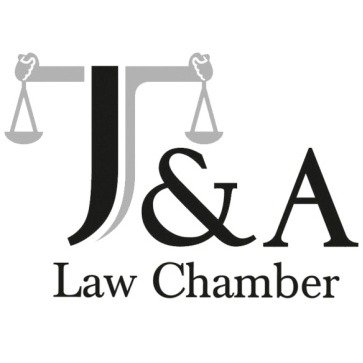Best Employment & Labor Lawyers in Tanzania
Share your needs with us, get contacted by law firms.
Free. Takes 2 min.
Or refine your search by selecting a city:
List of the best lawyers in Tanzania
About Employment & Labor Law in Tanzania
Employment and labor law in Tanzania regulates the relationship between employers and employees, aiming to ensure fair practices within the workforce. Tanzania's legal framework provides guidelines for employment contracts, rights, and obligations of both parties, exemplified by the Employment and Labour Relations Act and the Labour Institutions Act. These laws aim to foster harmonious industrial relations and equitable treatment of workers within the country.
Why You May Need a Lawyer
Engaging a lawyer for employment and labor law matters in Tanzania can be essential for several reasons:
- Unfair Dismissal: Legal representation may be necessary if an employee feels they have been unjustly terminated.
- Contractual Disputes: When there are disagreements regarding the terms or enforcement of an employment contract.
- Workplace Discrimination or Harassment: Victims may require legal help to address and resolve these issues.
- Labor Union Representation: Employers or employees may need guidance on legal matters concerning trade unions and collective bargaining.
- Compliance Issues: Organizations may need legal advice to ensure they adhere to the appropriate employment laws and regulations.
Local Laws Overview
The key aspects of local employment and labor laws in Tanzania include:
- Employment and Labour Relations Act: This Act stipulates the fundamental rights and protections afforded to workers, including contracts of employment, non-discrimination, and fair wages.
- Labour Institutions Act: Establishes various labor institutions such as the Labour Court and Commission for Mediation and Arbitration, granting them powers to resolve labor disputes.
- Occupational Safety and Health: Legislation mandates employer responsibilities for maintaining a safe working environment.
- Minimum Wage: The government sets industry-specific minimum wages which employers must adhere to.
- Leave Entitlements: Employees are entitled to various forms of leave, including annual leave, maternity/paternity leave, and sick leave.
Frequently Asked Questions
What constitutes unfair dismissal in Tanzania?
Unfair dismissal involves termination of an employee’s contract without a valid reason as outlined in the Employment and Labour Relations Act, or without following due process.
How is severance pay calculated?
Severance pay is generally calculated based on the length of service, with employees being entitled to not less than seven days' basic wage for each completed year of service, following minimum statutory provisions.
Can an employer reduce an employee’s salary without consent?
No, any alteration to the terms and conditions of employment, including salary reduction, generally requires mutual consent between the employer and employee.
What are the rights of employees regarding workplace health and safety?
Employees have the right to work in environments that are free from hazards, and employers are obligated to provide appropriate safety equipment and training to prevent accidents and health issues.
What is the role of the Labour Court in Tanzania?
The Labour Court adjudicates matters related to employment disputes, ensuring justice in cases concerning unfair labor practices, contract terminations, and other related issues.
Is membership in a trade union mandatory?
No, joining a trade union is not mandatory in Tanzania; it is the employee's choice whether or not to become a member of any union.
What is the legal framework for maternity leave?
Female employees are entitled to a minimum of 84 days of paid maternity leave, which increases to 100 days for a multiple birth or if there are complications.
Can expatriates work in Tanzania?
Yes, expatriates can work in Tanzania but must obtain the necessary work permits and stay within the regulations outlined by immigration and labor laws.
What procedures exist for resolving labor disputes?
Disputes can be addressed through mediation via the Commission for Mediation and Arbitration (CMA), and unresolved issues can be escalated to the Labour Court.
How are employment contracts regulated?
Employment contracts must conform to Tanzanian labor laws, clearly outlining an employee's rights and responsibilities, working hours, remuneration, termination conditions, and other key terms.
Additional Resources
For further assistance and resources, consider reaching out to or referring to:
- Commission for Mediation and Arbitration (CMA): Provides mediation services for labor disputes.
- Labour Court: A judicial body focusing on labor related cases.
- Tanzania Employment Services Agency (TaESA): Offers information and services pertinent to employment.
- Occupational Safety and Health Authority (OSHA): Guides compliance with safety standards.
Next Steps
If you find yourself needing legal assistance in employment and labor matters, consider the following steps:
- Document Your Issues: Keep detailed records of any relevant communications and incidents.
- Consult a Lawyer: Seek legal advice from an experienced employment and labor law attorney to explore your options.
- Engage with Relevant Authorities: Contact bodies like the CMA or Labour Court as necessary for mediation or formal proceedings.
- Educate Yourself: Familiarize yourself with your rights and responsibilities under Tanzanian law to make informed decisions.
Lawzana helps you find the best lawyers and law firms in Tanzania through a curated and pre-screened list of qualified legal professionals. Our platform offers rankings and detailed profiles of attorneys and law firms, allowing you to compare based on practice areas, including Employment & Labor, experience, and client feedback.
Each profile includes a description of the firm's areas of practice, client reviews, team members and partners, year of establishment, spoken languages, office locations, contact information, social media presence, and any published articles or resources. Most firms on our platform speak English and are experienced in both local and international legal matters.
Get a quote from top-rated law firms in Tanzania — quickly, securely, and without unnecessary hassle.
Disclaimer:
The information provided on this page is for general informational purposes only and does not constitute legal advice. While we strive to ensure the accuracy and relevance of the content, legal information may change over time, and interpretations of the law can vary. You should always consult with a qualified legal professional for advice specific to your situation.
We disclaim all liability for actions taken or not taken based on the content of this page. If you believe any information is incorrect or outdated, please contact us, and we will review and update it where appropriate.
Browse employment & labor law firms by service in Tanzania
Tanzania Attorneys in related practice areas.
Browse employment & labor law firms by city in Tanzania
Refine your search by selecting a city.













